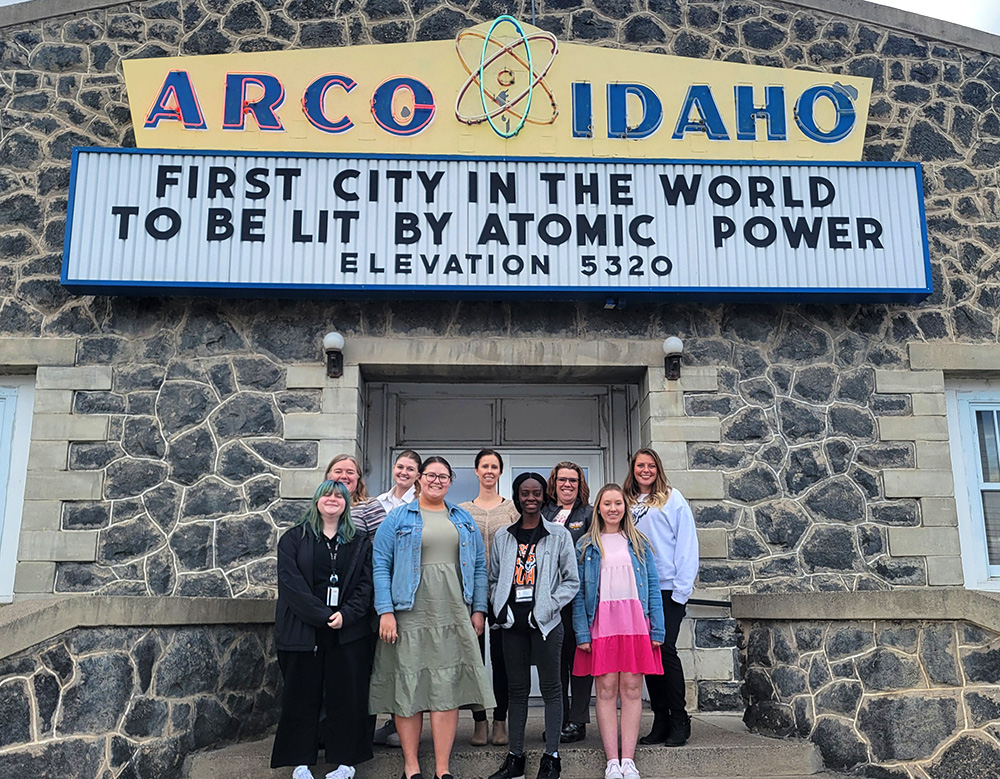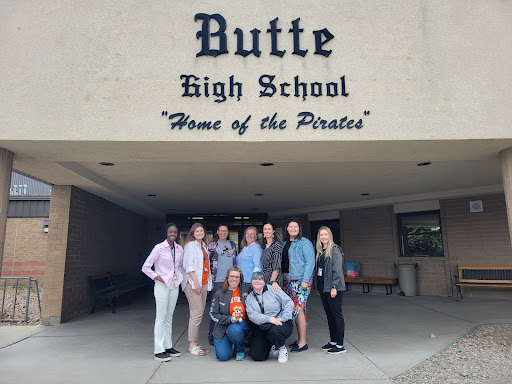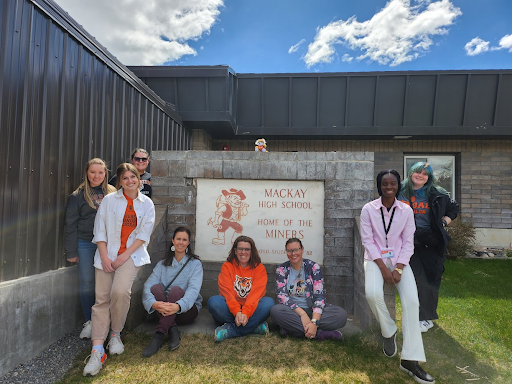Expanding Teacher Education to Rural Idaho: The 2024 TRAIL Experience
June 6, 2024

Traveling to the world’s first city lit by atomic power, eight Idaho State University College of Education students participated in this year’s Teaching in Rural Areas Immersion Learning (TRAIL) Experience in May 2024.
TRAIL offers a hands-on understanding of teaching in a rural-remote Idaho school district through a mix of preparatory coursework, a week-long rural immersion field trip, and a final poster presentation based on an issue or insight gained while at the school.
Nestled in Idaho’s backcountry, ISU students Crystal Peace, Kailey Marler, Vivian Owusu, Kristi Steidley, Lori Johnson, Jenna Lamar, Megan Tooke, and Hawley Hennen spent four days learning, assisting, and teaching within the Butte County School District located in Arco, Idaho, in either the elementary, middle, or high school setting.
ISU teacher candidates were paired with a Butte County teacher mentor who helped them understand the difference between teaching in a rural-remote school district compared to an urban one. Candidates observed, assisted the teacher and students, and even taught some lessons.
In addition, faculty and candidates took a half-day to visit the nearby rural-remote community of Mackay, Idaho, and meet the 2024 Idaho Teacher of the Year, Trent Van Leuven. They were able to experience Mr. Van Leuven’s extensive agriculture, aquaculture, and shop programs, learning more about how students in rural-remote areas can potentially have more opportunities in some areas of education than those in urban areas.
Arco has a population of around 900 people, while Mackay has a population of 400 people. Both areas are considered rural-remote communities in Idaho. Due to isolation and many other reasons, oftentimes these communities have a harder time attracting and retaining teachers. Experiential learning programs, such as TRAIL, are critical to allowing future teachers to learn about the benefits of both teaching and living in rural areas by being immersed in the community and school. These out-of-traditional-course experiences also allowed the candidates to further expand their knowledge and skills of teaching in a variety of settings, while connecting them with mentors and fellow students within their program.
“My experience in rural school teaching has renewed my sense of purpose and solidified my commitment to being there for my students, no matter what challenges arise,” said Crystal Peace. “The close-knit community and the unique opportunities to make a meaningful impact are truly unparalleled.”
This year’s participants were grateful for the chance to enhance their teaching skills and deepen their understanding of rural education. Similar to Crystal, many teacher candidates reaffirmed their choice to become teachers and found that the benefits of teaching in rural schools include a stronger sense of community, smaller class sizes, a potential lower cost of living, and often greater access to nature and outdoor educational opportunities.
Kristi Steidley also noted about the experience, “We can read from textbooks and listen to teachers, but nothing compares to being in the classroom and engaging with the students. The atmosphere in rural schools is one of respect and support. There is a strong sense of belonging.”
Funded by a College of Education’s Dean’s Excellence Grant, TRAIL was led by ISU Teaching and Educational Studies faculty Dr. Amanda Eller and Suzanne Beasterfield. Dr. Eller and Mrs. Beasterfield wish to thank Butte County principal Allen Carter and school board member Karen Pyron, as well as Mackay principal Stephanie Fullmer and teacher Trent Van Leuven, for their help in organizing the 2024 TRAIL Experience.
To learn more about the ISU Teaching and Educational Studies Department, please visit isu.edu/tes.


Categories:
